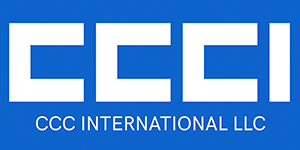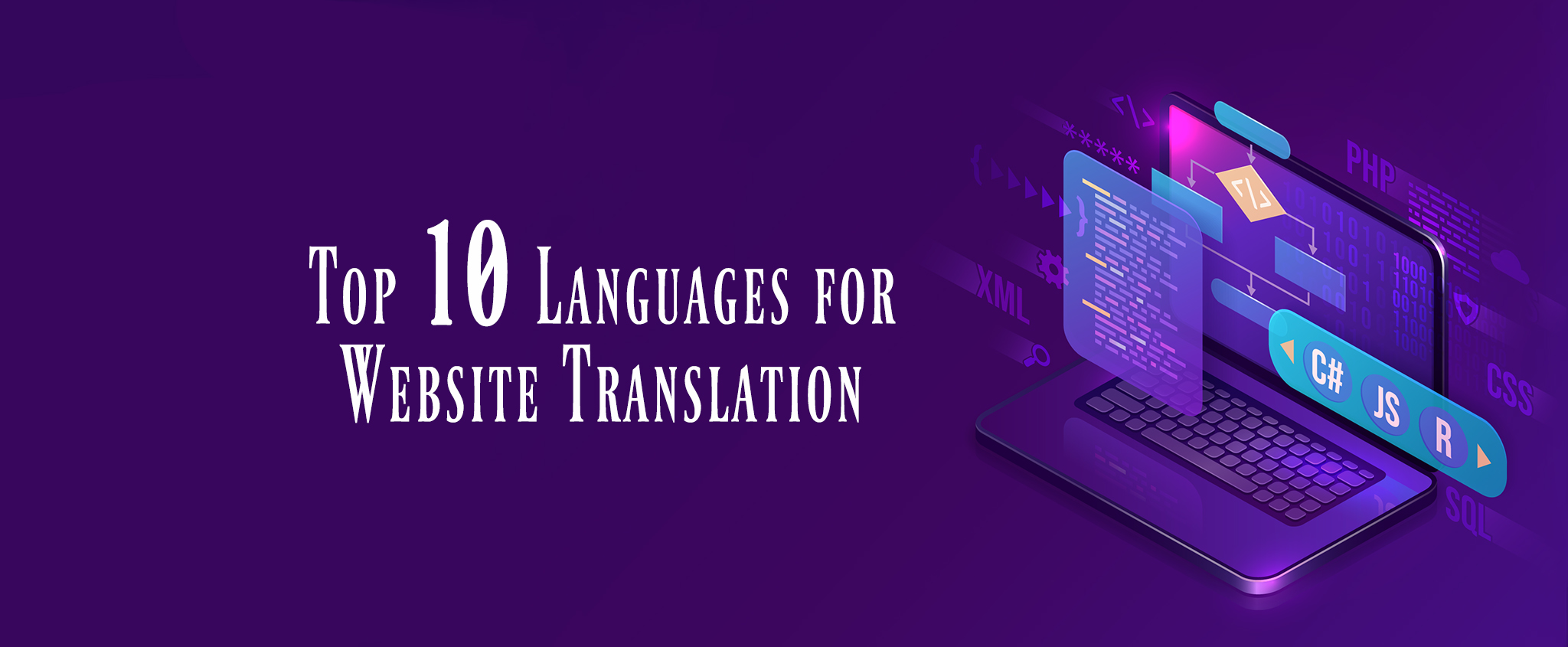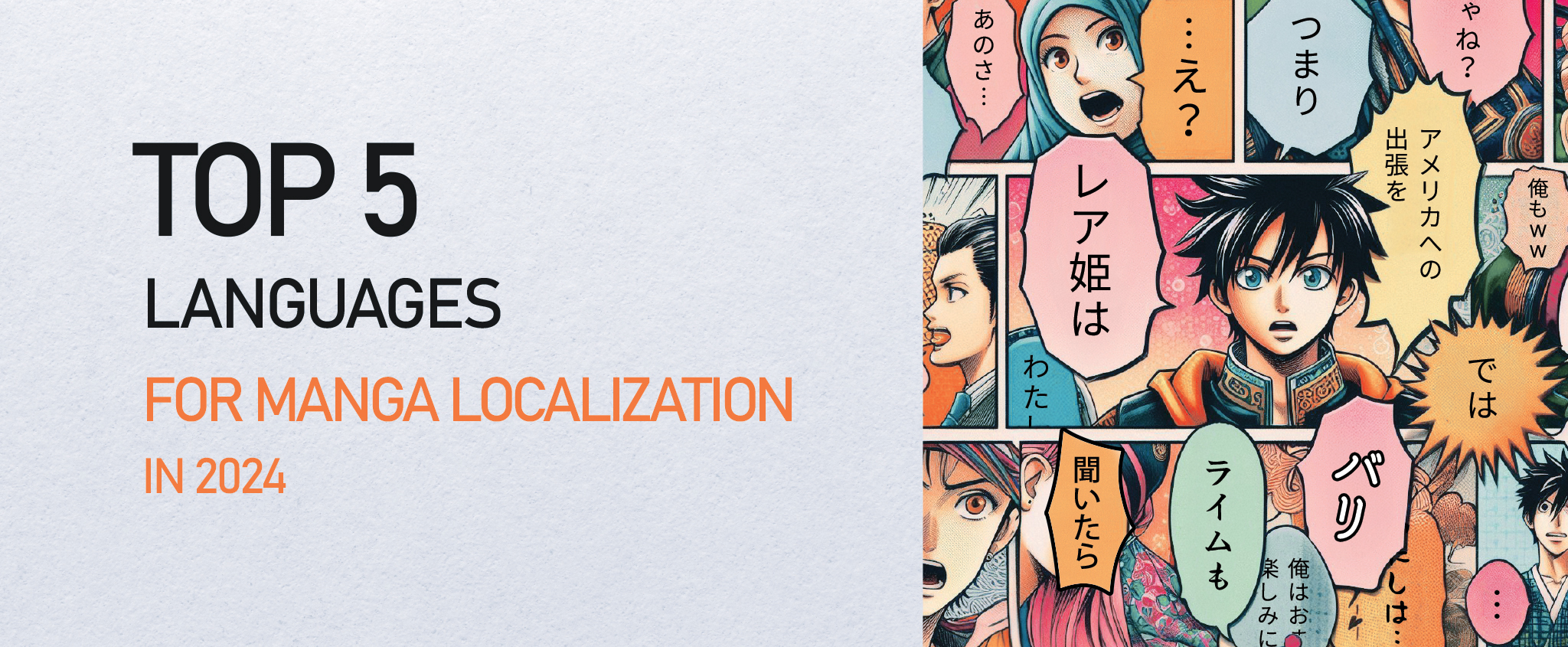Top 10 Languages for Website Translation
With billions of people around the globe, thousands of languages are spoken globally. Moreover, in the business world, languages play a huge part for global expansion. For those who believe that their business needs a website, one of the most common questions is which languages they should translate their website into. Multilingual website translation expands the target audience of any business. International brands and big corporations try to attract more customers by translating their websites to other languages. Businesses try to attract customers, increase their site visit rates from around the world, and increase their sales by providing localized and translated websites.
At CCCI, a global and leading localization and translation services provider, we will meet all these requirements. We provide e-commerce website translation services supported by years of experience, tools, systems, and individuals dedicated to allowing you to sell around the world with minimal problems.
The million-dollar question here is: what are the most requested languages for website localization and/or translation? The following article will delve into the most frequently used languages for website translation and localization.
Based on the survey W3Tech conducted, the article will shed light on the reason for the high rate of content in these languages on the internet.
Website translation in French
French is the rich and diverse language of art and culture and the fifth most common language. The language is the most widely learned after English. The language holds 4% of the commercial content on the internet.
A 2014 New Republic article says that French is still required in 11 countries of Africa by many website localization services. Therefore, introducing any product to these countries requires the French language. This will increase the popularity of your eCommerce materials and speedily rotate your investment. Others claim that Africa’s growth will increase French importance and expect it to remain one of the main official languages in several countries around Africa.
Website translation in German
German is one of the most popular languages in Europe and is used in Austria, Belgium, Luxembourg, Liechtenstein, Switzerland, and Germany. This language is easy for English speakers and can be learned faster than others. In terms of business, several website localization agencies, including CCCI, provide website translation services in German to give enterprises worldwide access to the active and fast-growing German market.
The German language dominates 6.0% of the eCommerce translation service products on the internet. One reason for that is that Germany is one of the Western European countries where eCommerce is growing exponentially. 90% of Germans shop online. It is estimated that in 2021, over 22 million Germans will be shopping online. Considering that Germans take pride in their nation and language, it is not surprising that studies show that only 56% of the Germans would buy from online non-localized websites into German.
Website translation in Spanish
Spanish is spoken by 405 million people globally and ranks second in the most widespread languages. E-commerce content in Spanish holds 4.9% of content in various languages in the world. Furthermore, businesses believe that localizing their products and services in this language will pave the way for them in significant countries such as the United States of America, Spain, Latin America, and many of the 20 countries. It is also projected that by 2050 there will be more Spanish speakers in the United States of America than any other country in the world.
Website translation in Mandarin Chinese
Mandarin Chinese is just one of the languages spoken by the Chinese, but it is the official language of the country spoken by about 14.4% of the world’s population.
Learning this language is one of the most innovative steps to get ahead of business because China is the largest trading country in the world.
It is the second most commonly used language on multilingual business websites. No wonder Elon Musk advises entrepreneurs worldwide to learn the language if they want to go places in business
According to the W3Tech survey, 3.4% of the eCommerce website translation done on the internet is in Chinese. It is understood that such a low rate of the use of Chinese in the eCommerce website translation is due to its difficulty and the specificity of its users.
Website translation in English
English is a critical language that is always recommended to be learned by any individual and used by any business. It has 1.4 million people, with at least one in five, speaking the language. It is businesses’ first choice to bridge cultures and languages and localize their establishments quickly and successfully.
The W3Tech survey declares that more than 1.5 billion people can speak English worldwide, and since English is also the language of the internet world, the eCommerce content rate in this language is very high at 53.8%. Especially if you want to become global, translating your website into English may be a good starting point.
Website translation in Hindi
Hindi is the fourth most widely used language with 260 million native speakers. It is not difficult to learn as you can learn it in 1,100 hours or 44 weeks. In terms of business, if you’re looking for a country with a culture rich in knowledge and experience for flourishing your business enterprise, especially in the IT-sphere, you may well consider localizing into Hindi. Ecommerce website translation agencies recommend this language to newborn enterprises to deliver their business to such a huge market that represents 35% of the Asian market.
Website translation in Portuguese
As with Spanish, Portuguese could secure any enterprise a future in the United States of America as well as in ten other countries. Although it’s still limited to a small number of countries that consider it an official language, Portuguese is one the most requested languages for website localization in Western Europe and South America, known as the Lusophone Commonwealth. In terms of its use in the field of eCommerce website translation, Portuguese has 3% of the content rate online.
Website translation in Japanese
Japanese is the ninth most common language globally, one of the highly recommended languages for travel, trade, and technology.
Japan is one of the most advanced countries in technology as it is the third-largest economy in the world. As the majority of the Japanese population only communicates with the Japanese language, and English is not as widespread compared to other countries, localizing a website, a service, or a product in Japanese is a highly significant step in infiltrating this highly profitable and progressive market.
Commercial content online in Japanese is 2.4% of the world’s content. Several international brands try to enter this market, especially electronic enterprises. With over 150 electronic companies in a small country like Japan, most of which are well-known worldwide, it’s quite important to localize technology, electronics, and any other types of business into Japanese to enter this market.
Website translation in Russian
Russian is the sixth most widely used language in the world. It is the second most important language in terms of scientific and technical literature after English. One of the six official languages in the United States and is spoken by about 3.95% of the world’s population.
6.1% is the amount of Russian content in the field of eCommerce website translation as The W3Tech survey declares. Additionally, in order to reach your potential customers and to show your site in search results related to your products and services in countries like Armenia, Belarus, and the rest of the old USSR countries, adding Russian to your site will make a big difference.
Website translation in Arabic
Finally, Arabic is the mother tongue of about 430 (native and non-native) million people. The Middle East is considered one of the fast-growing markets in the world and the point of attraction for many international companies.
For companies aiming to enter the Arabic market, it is undoubtedly necessary to have one’s website translated and localized into standard Arabic. Your website is the backbone of your business and serves as a “home base” for customer purchases and online presence.
Multilingual website translation, especially in Arabic, gives a professional makeover to your website to appeal to the Arab countries you mean to expand into.
The W3Tech survey declares that 2.0% of the eCommerce websites are localized in Arabic. Global e-commerce sites have a high chance of success in the rich and diverse Arab world. If you can give Arabic internet users the opportunity to shop in their native language, who can’t shop at huge e-commerce sites like Amazon and eBay because of U.S. sanctions on some countries, their chances of favoring you will increase dramatically. This may make you consider taking the advantage of translating your site into Arabic.
Boost brand awareness through website translation
During the website localization process, the web content is adapted for consumption by a specific audience. This helps your brand reach your targets more efficiently. However, many companies make the mistake of merely translating content from English to the local language, resulting in missed opportunities and sometimes, unfortunately, loss of profit. Luckily, you don’t have to go through the same risk and trouble; website localization is a foolproof marketing strategy that unlocks better engagement from local audiences.
At CCCI, we provide translation and localization services for multilingual websites. Our professional translators and localization specialists will deliver your specialized and nuanced message to meet cultural preferences.
Read also – Industries that need translation services the most, and translation and localization trends for 2022.






